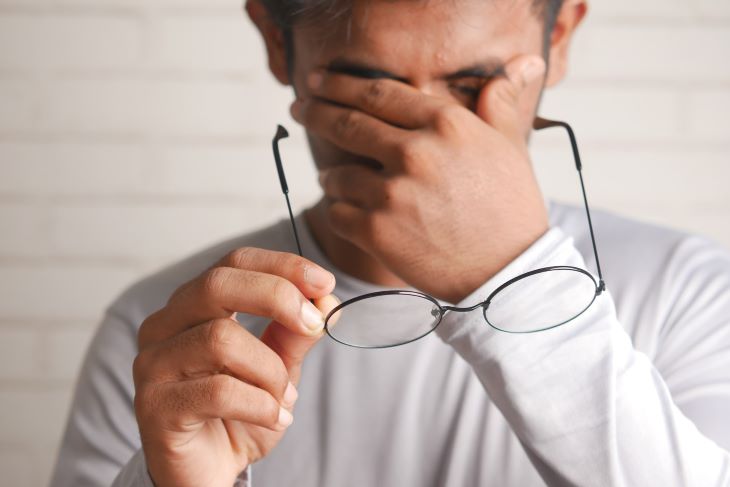- Home
- Addiction Detox
- Alcohol Detox
- Alcohol Detox Timeline
Alcohol Detox Timeline
If you decide to stop drinking excessive amounts of alcohol, you will likely experience a range of withdrawal symptoms.
The time it takes to complete detoxification depends on how much you usually drink, how long you have been abusing alcohol, and whether or not you have attempted to detox before.
Usually, withdrawal symptoms stop after around 5 days after the last drink though this can vary for each individual.
If you are struggling with alcohol addiction and would like to begin the detox process, call the Rehab Recovery team on 0800 088 66 86 today to source a swift admission to a local rehab facility.
Alcohol Detox Timeline – a Breakdown

The following alcohol detox timeline is in accordance with a systematic review published in the Industrial Psychiatry Journal and refers to the general guidelines when an individual is experiencing withdrawal symptoms. [1]
6 hours
At this point in the detoxification process, minor withdrawal symptoms usually begin to present. A person who has a long history of severe alcohol abuse may experience a seizure once they stop drinking.
12 to 24 hours
At this point in the withdrawal process, some people begin to experience hallucinations. Whilst this can feel incredibly scary, doctors do not consider it a serious effect of alcohol withdrawal. Hallucinations refer to hearing and seeing things that aren’t really there.
24 to 48 days
After 1 to 2 days, most people still experience minor withdrawal symptoms. Typical examples of minor withdrawal symptoms include headaches, upset stomach, and tremors/shaking.
If you are only experiencing a mild withdrawal, symptoms tend to peak at the 1 to 2-day mark and decrease after around 4 days.

48 hours to 72 hours
It could be at this point in the detoxification process that some patients experience delirium tremens (DTs). Delirium tremens are a severe form of alcohol withdrawal that can cause increased body temperature and blood pressure, seizures, and hallucinations.
If left untreated delirium tremens can result in death.
72 hours
At this point in the alcohol detox timeline, withdrawal symptoms are typically at their worst. In some instances of moderate withdrawal, symptoms can last for up to a month and include continued hallucinations and increased heart rate.
At Rehab Recovery, we offer free advice from a team of non-judgemental professionals, many of whom are in recovery and understand how hard can be to change your relationship with alcohol.
Simply reach out to our 24/7, confidential hotline on 0800 088 6686.
What are withdrawal symptoms?

Alcohol is a depressant on the central nervous system. In order to maintain the normal balance of neurotransmitter receptors, the brain produces feelings of relaxation and excitement that in turn, restimulate the central nervous system.
When an individual stops drinking, alcohol is removed from the original receptors as well as the ones your body made in response to the high levels of alcohol consumed.
This means that your nervous system is overactive and thus causes withdrawal symptoms to be felt.
The most common alcohol withdrawal symptoms are:
- Irritability
- Sweating
- Anxiety
- Shaking
- Tremors
- Nausea

In the case of DTs, patients may experience the following symptoms:
- Illusions
- Paranoia
- Hallucinations
- Increased heart rate
- Increased body temperature
- Seizures
This group of withdrawal symptoms are the most severe and can be life-threatening if not treated quickly.
Risk Factors for Developing Delirium Tremens

It is estimated that around 50% of people with a diagnosed alcohol use disorder will experience withdrawal symptoms at some point during the alcohol detox timeline. According to medical research, around 4% of people will exhibit the most severe forms of withdrawal. [2]
There are additional risk factors that can determine how long it will take for you to withdraw successfully from alcohol. These risks will also increase your risk of developing delirium tremens.
Examples of symptoms experienced during the alcohol detox timeline include:
- Previous history of DTs
- History of alcohol-related seizures
- Low potassium levels
- Low platelet counts
- Low sodium levels
- Elderly at time of withdrawal
- Abnormal liver function
- Dehydration
- Existent brain lesions
- Use of other substances
If you experience any of the above risk factors, it is imperative you withdraw from alcohol at a designated facility that is equipped to treat alcohol-related complications.
What treatments can be prescribed during the detox process?

Withdrawal affects each individual differently so there isn’t just one treatment method to reduce the severity of withdrawal symptoms. Some people don’t require medication to help their withdrawal and instead continue in therapy and support groups during the detox process.
Those with moderate to severe withdrawal symptoms will likely be prescribed evidence-based medication to help alleviate some of the challenging symptoms.
Benzodiazepines
These medicines are one of the most commonly prescribed during the detoxification process. In UK treatment clinics, the drug Librium is usually prescribed. Librium is used to treat anxiety and alcohol withdrawals and is very effective in doing so.
Benzodiazepines act on the brain and central nervous system to produce an overall calming effect.
Neuroleptics
Neuroleptics are also known as antipsychotic medications and block dopamine receptors in the nervous system.
Whilst they are most commonly prescribed for mental health disorders, they can be used to depress activity in the nervous system which prevents seizures during the detox process.

Nutritional treatment
As well as prescription medication, your medical team may also offer vitamins and minerals to help reduce withdrawal symptoms such as fatigue, dehydration and any nutrient deficiencies caused by prolonged alcohol abuse.
Once you have overcome the initial withdrawal symptoms, the medical team in your rehab clinic may prescribe continued medication to prevent you from drinking again.
These medications are only given in very specific situations when it is unlikely you will be able to withstand abstinence.
Disulfiram (Antabuse)
This substance reduces cravings by making you feel very ill when you consume it with alcohol. In time, it is likely you will associate drinking alcohol with feelings of intense sickness. Disulfiram acts as a deterrent to stop you from drinking further alcohol.
Naltrexone (Nalorex)
Although naltrexone is most commonly prescribed for those with opioid use disorders, it also works in the continued treatment of alcohol use disorder.
This is because it blocks opioid receptors in the body therefore the desired effects of alcohol consumption cannot be felt.
At rehab, a doctor will discuss your options for immediate and continued treatment to facilitate you throughout the alcohol detox timeline to make sure you are 100% on board with their recommendations.
These medications are only a small selection of the treatments on offer. It is also important to remember that these medications will be prescribed in combination with a variety of other methods such as therapy.
Reaching Out for Help

If you are currently struggling with your alcohol consumption and are drinking to dangerous levels, we urge you to call our team on 0800 088 66 86. We can source immediate admission to a local rehab facility of your choice.
Here you can access quality care and begin the detoxification process privately. Some clients prefer to detox in the home environment with professional support.
Whilst home detoxes can be beneficial for some, they can result in further damage if there are triggers and distractions found in the home.
At rehab, your mental and physical health is taken into consideration at all times to allow you to recover and enter long-lasting sobriety.
There are also lots of free groups widely available in the UK to help provide support to those affected by alcohol use disorder. The most popular is Alcoholics Anonymous.
Alcoholics Anonymous has been running for nearly 100 years and holds group sessions each week to help provide continued support and advice for people in recovery.
During the years 2018 to 2019, there were over 358,000 alcohol-related hospital admissions in England alone. [3]
If you think your drinking has reached worrying levels, there is no better time to reach out than today. Call today on 0800 088 66 86 to speak to a helpline adviser about what to expect from the alcohol detox timeline.
For fast, judgement-free advice at all times, choose Rehab Recovery today. We can help you to achieve sobriety.

References
[1] Clinical management of alcohol withdrawal: A systematic review
https://www.ncbi.nlm.nih.gov/pmc/articles/PMC4085800/
[2] Management of withdrawal delirium (delirium tremens). https://escholarship.org/uc/item/4jm2h3bx
[3] Statistics on Alcohol, England 2020
https://digital.nhs.uk/data-and-information/publications/statistical/statistics-on-alcohol/2020


